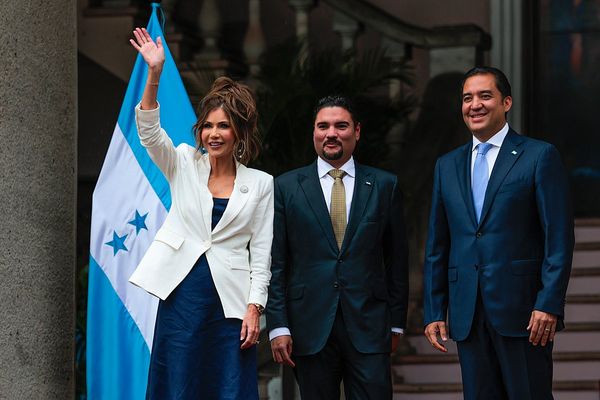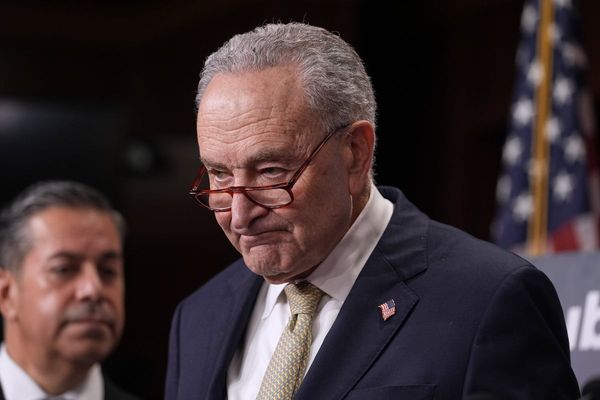
OneRepublic has sold approximately over 10 million records worldwide – and a new album, the band’s fifth, is due to drop this year.
Ahead of that, they’re among a handful of artists and bands and artists featured in the Netflix music documentary series Once in a Lifetime Sessions. Once in a Lifetime Sessions Season One, Part Two includes hour-long episodes featuring never-before-seen in-depth interviews and intimate performances, as the subjects record new hits and old favorites.
I caught up with the band’s Grammy award-winning lead singer and songwriter, Ryan Tedder, to talk about the documentary, his burn out and the slew of TV and film projects he’s developing.
Simon Thompson: Did you need much persuading to do this?
Ryan Tedder: I did need some persuading; I had to be talked into it. We were not launching the first single off a new album, and we’re going to do an album, if not two albums in 2019, so for me where this landed time-wise, it didn’t make any sense to me in terms of the calendar. I got weary because what are we promoting? You know that in the music business if you go on camera, it’s because you’re finished promoting something. Not that I don’t love Netflix, I didn’t know what we were doing. When I sat down and watched some clips from one of the other episodes it was done so well that I didn’t care what we were promoting, we should do it.
ST: You’re talking about new stuff coming out, and how it’s been two years since you were chasing the last single, there have been significant changes in the music industry and audience’s tastes change. Is it scary to jump back in?
RT: Yes. Oh my God, it’s a nightmare. Once we got off our last album cycle, I got back to LA and kind of dove into things other than music for the first time in 15 years. I got heavily into commercial real estate, I got into investments, and I got into developing other artists, developing songwriters, and developing TV shows. I started flexing in a bunch of different areas and writing songs all the time. You know I’m still percolating and doing records with Ed Sheeran and Paul McCartney and Major Lazer and Pink, some of the Jonas Brothers and some urban guys, kind of all over the musical map. I’m still in the thick of writing and producing but the last two years has been the most significant seismic shift in the music business in my entire career. What streaming has done is democratized the songwriting process, and democratized music in general.
ST: How can you explain that?
RT: It’s the equivalent to five years ago you driving down the main street in your hometown, and you’re trying to decide where to go to dinner, and you’ve got ten restaurants that have been kind of vetted and have a proven track record and been around for a while. Now it’s the equivalent of you drive down Main Street, and there are 1,000 restaurants, and every single restaurant is Ryan’s Buffet, unlimited, everywhere you go, and wherever you turn. It’s the same phenomenon that people are experiencing with Netflix. Now there’s so much content when you go to the look and wonder what you should watch tonight, so many people end up with paralysis by analysis. You end up watching trailers 30 minutes of 10 different shows and not picking something or taking a break or starting something and them having FOMO about the 19 other things that you’re missing out on. In music, it is like that now too.
ST: How does that manifest itself in the music industry?
RT: People cherry pick singles. Nobody, and when I say nobody I am making a very broad comment, but most people now are not diving deep on an album. They’re cherry picking singles or adding them to the playlist. The average artist will not get deeper than two singles per album moving forward, but you have rare exceptions like Ed Sheeran and Ariana Grande because she went to her third single before pivoting to a new album. Generally speaking, most major labels will tell you to give it to two singles off an album, two hits, and then that’s it. When we released Native, our biggest album, we did one single leading into the album release and then once the album drops that is the beginning of your album cycle. Now when your record is released that the end of the album cycle, you’re done, you’ve shown your hand and by the following New Music Friday your album has been consumed by people, they have determined whether its good or not and, frankly, even if it is incredible they are moving onto the next week. Now you get maybe 50% of the volume of songs that go to radio that you used to. It is a crazy time in music, and I’m lucky that I’m still able to do it. In the last six months I hunkered down and refocused on writing and producing and I have a bunch of bunch of singles coming out starting at the top of the year, and I feel lucky and fortunate because it’s hard out there.

ST: With this show on Netflix, you go deeper and give people a peek behind the curtain, but were you worried about putting too many of your cards on the table and revealing too much? How metered were you in the interviews?
RT: Honestly, I wasn’t metered at all. I’ve just been doing this long enough, and I’m deep enough into my career, that I finally afforded myself to give as least amount of s***ts as possible regarding putting up some metaphorical barricades, hiding behind a character, or only projecting the persona that I want you to see. That’s exhausting, and that’s not who I am. I’m from the suburbs of Oklahoma and lived down the middle of nowhere and outside of Oklahoma City. I had zero exposure to that pretension growing up; it’s not part of the fabric of where I’m from or who I am. I try to be as transparent as possible at all times. I think maybe in the early parts of my career, we started in 2007, and back then we grew up worshipping bands like Oasis and Radiohead and The Killers, and they were always so veiled and mercurial and it was like, ‘Oh, we need to be cool and we need to be serious we need to be a little more whatever.’ But it’s not my personality, man; it’s just not. For me, had I not got into music, I probably would have gone into the theatre, I was already doing theatre, and people who were theatre geeks are not exactly closed off and mercurial, they’re pretty open, they project. I’m not a tortured soul, so I’m not going to pretend to be one.
ST: Looking at these interviews and looking at your career, has this brought you what you wanted and have you now found the happiness that you hoped it would provide for you?
RT: I think happiness is a bit of a moving target. I can honestly say that for the majority of my life I’ve lived in that target. I’m very blessed. I have not battled depression, I had one bout in about ’16 or ’17, and I don’t even know if I’d call it depression, I would call it burnout combined with overwhelming anxiety. Maybe that’s depression? I probably had symptoms of depression that’s the only time I’ve explained it in my life. But no, I enjoy the process, I do. I don’t get caught up anymore. There’s a period of time, and you can’t help it if you’re a hit songwriter on any level, where if you watch the charts and you start you inadvertently start to base your value on your chart position, and that is a terrible, terrible, horrible thing to do. Every writer in this town has experienced that or is currently living in that. I walked away from that and started doing other things and finding success in stuff outside of songwriting and music. It began to validate me and make me think, ‘Okay, I’m not I’m not a one-dimensional person, I’m not a one trick pony. I actually can do other stuff, and I enjoy it.’ Ironically doing all these other things reignited my love for writing and producing again which is probably not a coincidence as to why I’m now experiencing a… what would you call the fourth wind? I guess I’ve had whatever different runs that artists and writers have in their career, I’m probably on my fourth, and for me, for the first time, I don’t feel any emotional attachment to how well a song performs or doesn’t.
ST: Really?
RT: Maybe I should. I’m writing and see they perform well and I’m doing every last detail on the singles that I have coming out in the hopes that they will bolster the careers of the people that are putting out and its the same with the new OneRepublic material. I’ve spent, off and on for the last six months, time on it in the hope that it is the best thing it can be, but you can’t control culture, and you can’t fake it. I’m not going to get two rappers and track down some Soundcloud dude with fake tattoos because he’s streaming like crazy right now and has a bunch of Instagram followers and just put them on one of my songs. We’re all culture vultures, but there’s a line that I refuse to cross. I need to protect this fundamental dignity that I set out upon within OneRepublic. For me, the success that I experienced I would say did bring me happiness. Is that a weird thing to say? I put all my money down on you know 27, rolled the dice in my early 20s, walked away from my college degree, left my hometown, racked up tons of debt, I did all of that, and it did pay off. I attribute a lot of that to doggedness. I’m not the most talented person in any given room, but if I’m in a room with around 20 people and we all have equal talent, I have always held the opinion that I will outwork 19 of those people. It’s the one attribute that I’ve always had.
ST: You mentioned that you are developing TV projects and this is a Netflix show. Is that an area where you are putting more effort into, creating shows and maybe films?
RT: It kind of inadvertently has gone that way. I started jumping on TV shows as mentors and hosts and that type of thing probably four or five years ago. We’ve developed a relationship with NBC and Fox and two other networks, and then I signed an exclusive deal with NBC about a year ago, and I’m an executive producer on and have been helping develop, a show called Songland which airs starting in May. We’ve done the pilot, and it tested like crazy, we’ve had a lot of good reaction to it. We’re shooting in March. I’m also going to be on that show. It’s all about music; it’s pulling back the curtain on songwriting and producing for the first time. It’s like what the Food Network did for food; this does for the songwriting process. Every episode has a different well-known artist. I love doing it. I’ve also developed a project with Simon Fuller.
ST: This has been part of the plan for a while?
RT: I wanted to do it a few years ago, and my wife begged me and said, ‘Please, I know that at some point you’ll end up doing television but just wait till you’re closer to 40 and we move back to LA.’ I’m barely hanging onto my 30s. I love the idea of being able to talk about music, write records, produce, and also be able to drive home at night and be with my wife and kids. My oldest kid? I missed the first five years of his life pretty much; I was there for maybe 20% of the first five years? It’s so amazing and weird to reconnect with your kids when you’ve been touring for more than a decade. I love it. I’m definitely not stopping One Republic but I recently also got asked to co-executive produce a film with a very well-known actress and her production partner which I’m not at liberty to say who that is right now, but it’ll be a musical. So, I’m loving this, man.
ST: Your other dream is coming true.
RT: I wanted to be in film and TV when I was a kid and then I discovered that music had a stronger pull for me so I dove into that because I wanted to write the story and I knew that if I became an actor someone would always be writing my story and I’d be replaceable. It’s afforded me a great life, and I’m very thankful and genuinely blessed for it but I also always knew that I never wanted just to do one thing. I still love OneRepublic, we’re still going to tour, this new album I think will be phenomenal, but I can’t ever do what we’ve done in the past where, and I don’t care how successful the album is, I leave home and I’m on the road for two years. Once you have a family and kids, it changes everything.
Once in a Lifetime Sessions Season One, Part Two is streaming on Netflix now.







